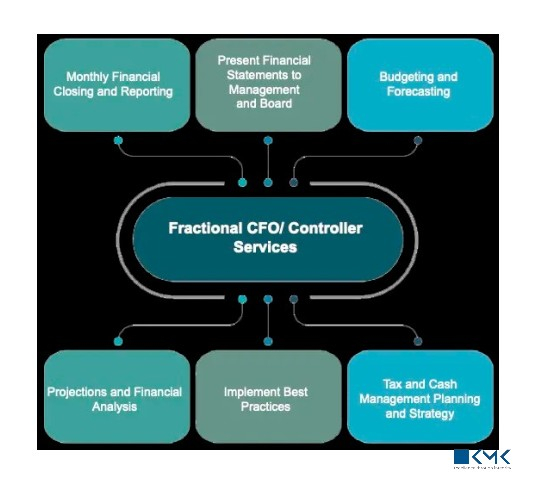Why More US Firms Are Recruiting Offshore Accountants Amid Talent Shortage

In 2025, the accounting profession in the United States is facing one of its toughest challenges — a growing talent shortage. From large CPA firms to mid-sized businesses, employers are struggling to find qualified accountants to meet rising client demands. As a result, more and more companies are recruiting offshore accountants to fill the gap.
But why is this trend accelerating, and what makes offshore recruitment such a practical solution? Let’s explore why US firms are embracing this approach and how it is shaping the future of accounting.
The US Accounting Talent Shortage Explained
Over the past few years, the US has seen a decline in the number of students pursuing accounting degrees. Retirements among experienced professionals, combined with burnout and high turnover, have worsened the shortage.
According to industry surveys, thousands of accounting roles remain unfilled each year. This shortage creates pressure on CPA firms and finance departments, leading to:
-
Overworked staff handling more clients than they can manage.
-
Delayed reporting and tax filings due to understaffing.
-
Lost revenue opportunities when firms have to turn away clients.
Faced with this reality, US businesses are increasingly turning to recruiting offshore accountants as a way to maintain productivity and client satisfaction.
Why Offshore Recruitment Makes Sense in 2025
Hiring offshore accountants is no longer viewed as just a cost-saving measure. It has become a strategic solution to the workforce crisis in the accounting industry. Here’s why it makes sense:
-
Access to Global Talent
Offshore markets such as India, the Philippines, and Eastern Europe produce a steady stream of accounting graduates who are skilled in international standards like US GAAP and IFRS. -
Cost Efficiency
Labor costs offshore are significantly lower compared to the US, allowing firms to reduce expenses while maintaining high-quality output. -
Scalability
Offshore teams can be expanded during peak seasons (like tax deadlines) and scaled down when workloads decrease. -
Round-the-Clock Productivity
With time zone differences, work can continue overnight, speeding up client deliverables.
By blending local expertise with offshore support, firms create a model that balances quality, affordability, and efficiency.
How Recruiting Offshore Accountants Works
For firms new to offshore hiring, the process typically follows a structured path:
-
Identify Tasks to Offshore
Bookkeeping, payroll, reconciliations, tax preparation, and audit support are common starting points. -
Select the Right Offshore Partner
Businesses can work with offshore staffing agencies or outsourcing firms that specialize in connecting US companies with qualified accountants. -
Screen for Skills and Compliance
Offshore accountants should be tested for technical knowledge, US compliance standards, and proficiency in cloud-based tools like QuickBooks, Xero, and NetSuite. -
Integrate Teams
With clear communication frameworks, offshore staff can work seamlessly with US teams, ensuring consistency and reliability.
Addressing Concerns About Offshore Recruitment
Despite the clear benefits, some US firms hesitate to embrace offshore hiring due to common concerns. Let’s address them:
-
Data Security Risks: Reputable offshore providers follow strict security protocols such as SOC 2, ISO 27001, and GDPR compliance.
-
Quality of Work: Offshore accountants are often trained specifically for US markets, with certifications and experience in tax and compliance.
-
Cultural and Communication Barriers: With modern collaboration tools like Zoom, Slack, and cloud accounting platforms, communication has become seamless.
These concerns can be mitigated by working with trusted partners and investing in training and integration.
The Strategic Benefits Beyond Cost Savings
What’s interesting is that firms quickly realize offshore hiring isn’t just about saving money. The real benefits go deeper:
-
Improved Work-Life Balance for Onshore Teams
By assigning repetitive tasks offshore, local accountants can focus on advisory work and client relationships. -
Faster Turnaround Times
Offshore support ensures deadlines are met without overwhelming in-house staff. -
Ability to Offer More Services
With offshore support handling the basics, US firms can expand into consulting, forecasting, and financial advisory services. -
Competitive Advantage
Firms that leverage offshore recruitment can handle more clients, grow faster, and remain resilient against workforce shortages.
Offshore Recruiting in Action: A Case Example
Consider a mid-sized CPA firm in New York. Struggling with staff turnover during tax season, they decided to recruit offshore accountants in India. Within months, they built a team that managed bookkeeping, tax prep, and reconciliations.
The result? The firm reduced turnaround times by 35%, saved nearly 40% on labor costs, and allowed their US CPAs to focus on higher-value advisory services. Their clients noticed the difference — faster service, better insights, and more attention from local staff.
Looking Ahead: The Future of Offshore Accounting in the US
In 2025 and beyond, offshore recruitment will likely become the new normal for US firms. The talent shortage shows no signs of slowing, and globalization is making offshore collaboration easier than ever.
We can expect to see:
-
More offshore teams handling not just transactional tasks, but also complex reporting and compliance.
-
Increased adoption of AI and automation in offshore accounting workflows.
-
A shift in perception — where offshore accountants are seen as strategic partners rather than just outsourced labor.
Final Thoughts
The accounting talent shortage in the US has made one thing clear: firms need to think globally to stay competitive. That’s why more and more businesses are turning to recruiting offshore accountants as a long-term strategy.
Offshore recruitment isn’t just a response to the shortage — it’s a pathway to scalability, efficiency, and sustainable growth. For US firms that want to thrive in 2025, embracing global talent isn’t optional anymore. It’s essential.
- Art
- Causes
- Crafts
- Dance
- Drinks
- Film
- Fitness
- Food
- الألعاب
- Gardening
- Health
- الرئيسية
- Literature
- Music
- Networking
- أخرى
- Party
- Religion
- Shopping
- Sports
- Theater
- Wellness

